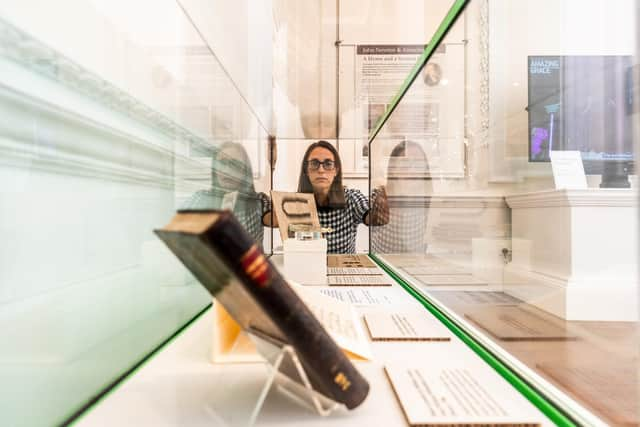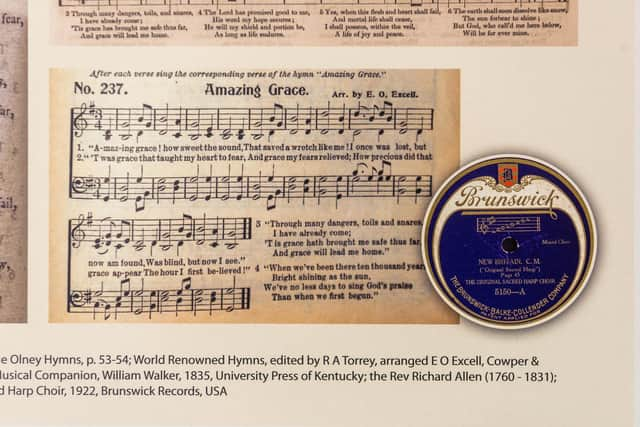Amazing Grace: The remarkable story of the slave ship captain turned composer of one of world's most famous hymns
Shackled by hand and foot to the person lying next to them in a tiny stifling space below decks, unable to move freely for nine months, they experienced unimaginable suffering. Many died before reaching journey’s end – where yet more cruelty awaited.
But it took years for Newton, who later composed one of the world’s most popular hymns, Amazing Grace, to see how wrong it was.
Advertisement
Hide AdAdvertisement
Hide AdThe words of Amazing Grace are known the world over, and it has become known in the US as the nation’s “spiritual anthem”.


Newton’s remarkable story is now the subject of an exhibition at the birthplace of his associate abolitionist William Wilberforce, Wilberforce House Museum, in Hull.
Newton, who had been press-ganged into the Navy, when he was a teenager, converted to evangelical Christianity in 1748, after surviving a violent Atlantic storm.
At the time slavery was respectable, “an easy and creditable way of life” as Newton himself wrote.
Advertisement
Hide AdAdvertisement
Hide AdBetween 1500 and 1900 around 12m Africans were forcibly transported across the Atlantic. Those that survived the journey were then often deliberately worked to death.


For four years following his conversion, Newton – who was still in his 20s – captained three slave ships. Ten of the enslaved people died on the first crossing and 40 on the second.
Newton resigned his commission on the advice of his doctors after suffering a stroke in 1854.
By this time his views were beginning to change. He later wrote in Thoughts Upon The African Slave Trade (1788): "I think I should have quitted sooner had I considered it as I now do to be unlawful and wrong.
Advertisement
Hide AdAdvertisement
Hide Ad"But I never had a scruple upon this head at the time; nor was such a thought ever suggested to me by any friend."
Amazing Grace was written in December 1772 when Newton was curate-in-charge at St Peter & St Paul’s church in Olney, Buckinghamshire.
Since then there are said to have been over 5,000 recordings, with covers by everybody from Elvis Presley to Aretha Franklin, and its message of hope and redemption makes it popular for funerals.
Newton lived just long enough to see MPs vote to abolish the slave trade in March 1807, at the end of a 20-year campaign led by Wilberforce.
Advertisement
Hide AdAdvertisement
Hide AdEven after the passing of the Act, and the introduction of fines for those caught with enslaved people on board, the cruel trade continued for decades, with captains sometimes dumping captives overboard when they saw Royal Navy ships coming. The exhibition, which runs until November, includes a film, showcasing local choirs, singers and musicians performing the hymn.
